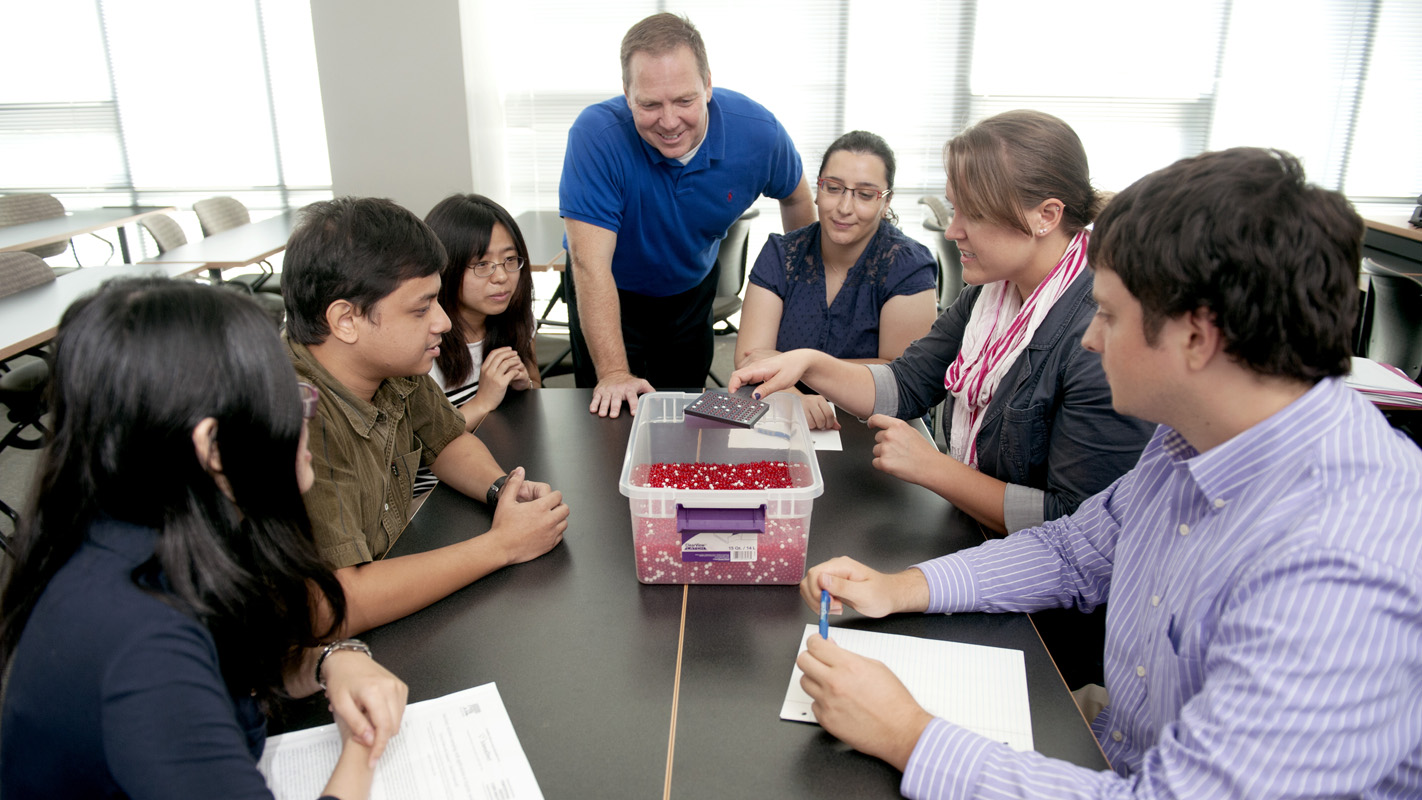Like many faculty who coordinate large courses, Roger Woodard saw many challenges repeat themselves every semester in Statistics 311. Some students had difficulties with the course while others were bored. With a large course primarily taught by graduate instructors, however, it’s hard to personalize the course for each student.
Woodard and his colleagues realized that DELTA could help.
Woodard, associate professor in the Department of Statistics, wanted to substantially change the way the course worked and to improve the experience for students and instructors by taking advantage of technology. He decided to “look at that problem and actually put some effort into really resolving this and not remain with the status quo where we see the same kinds of problems and the same kinds of issues.”
Going Hybrid
Having received an IDEA Grant (now named DELTA Grants) early on, Woodard was aware of what DELTA was doing in online learning and teaching. He received the grant to assist with converting the traditional class into a hybrid.
The result of his collaboration with DELTA is a new approach to ST 311. Rather than three hours in the traditional face-to-face classroom, students complete two hours of online lectures and one hour face-to-face. These online lectures are broken down into about 15-minute interactive segments that students can watch at their convenience.
The course is designed so students get the basics from the online component. Then the heavy, big-picture discussions are done face-to-face so students with questions or those needing more support with the concept can receive it in the classroom.
“We have always been driven by the idea that you should always do individually what makes sense to do as an individual and you should do as a group what makes sense to do as a group,” he says. “Learning a definition, you don’t need 30 other people around you to do that, but to really talk through and discuss the implications of the facts that you learned makes more sense to do as a group.”
Ensuring Student Success
Making sure students succeed in the class without sacrificing academic standards was another key motivation for Woodard. Most students taking ST311 need at least a C minus to fulfill degree requirements. Woodard wanted to make sure students don’t need to repeat the course.
“That’s not good for the students, that’s not good for us and it’s not good for the university,” he says. “So we wanted to make sure we get everyone through the course as best we can.”
Critical-path courses, those required by a major, college or the university for graduation, are now a competitive category within the annual DELTA Grants funding.
As the subject expert, Woodard figured out what instructors really wanted the students to know at the end of the class and how to get them to that point.
“There are a lot of technologies out there that you can use and the key is to try to find something that matches that,” Woodard says. “DELTA gave me an introduction to a lot of different technologies and I could pick and choose from that buffet based on what I was trying to get the students to do. It was really helpful in that regard.”
The research shows students are learning more efficiently and Woodard believes the instructors are spending their time more efficiently as well. They have the time to check in on students earlier who may be having issues with content.
The DELTA funding allowed the statistics department to get the ball rolling and laid out the structure of this new approach, according to Woodard. The class is still being taught as a hybrid, involving about 800 students a year with 33 students or less per section.
“One of the goals of the project was to make the class sizes smaller with the same resources,” he says.
If you are interested in DELTA Grants, applications/proposals will be accepted from April 7 through May 15.
- Categories:



